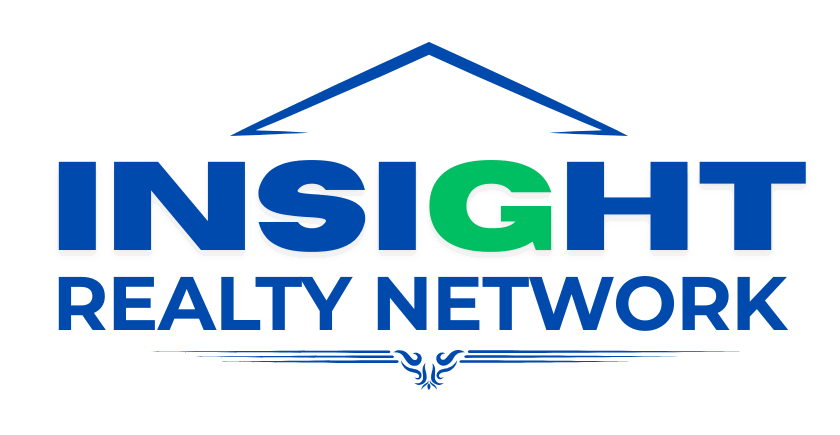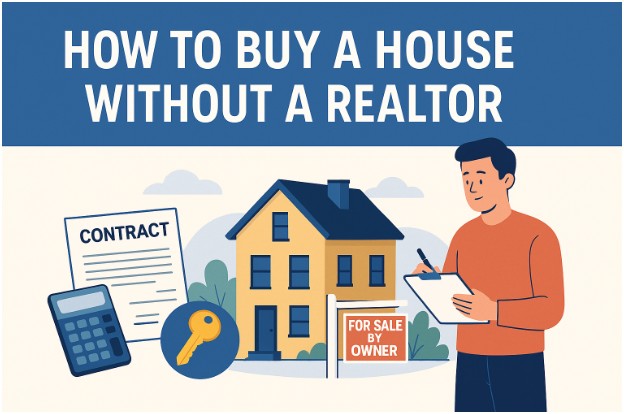I’ll be honest — the first time I considered how to buy a house without a realtor, I was both excited and intimidated. The idea of saving thousands in commissions sounded amazing, but the thought of handling contracts, inspections, and negotiations on my own?
Terrifying. Still, I learned that buying a home solo is not only possible — it’s absolutely doable if you know what to expect and prepare ahead of time. Here’s everything you need to know to pull it off confidently in 2025.
Can You Legally Buy a House Without a Realtor in 2025?

Yes, you absolutely can. There’s no law requiring you to hire a real estate agent. Many buyers go this route, especially when purchasing homes listed “For Sale By Owner” (FSBO). These deals are often simpler and may save you money on commission costs.
However, a big change since August 17, 2024, affects how commissions work. Due to a major National Association of Realtors (NAR) settlement, buyer’s agents must now have a signed agreement before showing homes. If you’re not using an agent, you won’t need that agreement — but it’s good to know how the landscape is shifting.
Step 1: Secure Financing and Plan Your Budget
Before you fall in love with any home, get preapproved for a mortgage. This tells you how much you can borrow and shows sellers you’re serious. Compare lenders carefully — even a small difference in interest rates can save you thousands over the life of the loan.
But financing is only part of the equation. You’ll also need to budget beyond the purchase price. Factor in closing costs (typically 2%–5% of the loan amount), inspection fees, appraisal fees, moving expenses, and potential repairs. Building these into your budget early keeps your finances stress-free later.
Step 2: Find and Evaluate Properties on Your Own
Without an agent, you’ll be doing the legwork yourself — but that doesn’t mean it’s hard.
Look for FSBO listings: These are homes sold directly by the owner, often advertised on FSBO-specific websites, major listing platforms, or even yard signs in neighborhoods.
Research the market: Study recent comparable sales (“comps”) in the same area to understand fair pricing. Sites like Zillow, Redfin, and local property records are great resources.
Evaluate the neighborhood: Since you won’t have a realtor’s insights, it’s on you to research the area. Check school district ratings, crime statistics, commute times, nearby amenities, and community events.
Visit at different times of day to get a feel for traffic and noise levels. A home is more than its walls — the neighborhood can dramatically impact your quality of life and resale value.
Step 3: Make an Offer Using the Right Forms and Contingencies

When you’re ready to make an offer, use state-approved purchase agreement forms. These forms help ensure your offer is legally sound and include all the details needed for a valid contract.
Be sure to include essential contingencies, such as:
- Financing contingency – your offer is valid only if you secure a loan.
- Inspection contingency – you can renegotiate or walk away if serious issues are found.
- Appraisal contingency – the property must appraise for at least the purchase price.
These clauses protect you from unexpected problems and give you leverage during negotiations.
Step 4: Negotiate Directly With the Seller
Negotiating without a realtor can feel daunting, but it’s manageable if you stay prepared. Remember, FSBO sellers are often trying to avoid paying commission, so they might not be eager to lower the price significantly. However, solid market research gives you the confidence to stand firm on fair offers.
Keep the conversation respectful and solutions-focused. If issues arise during inspection, request repairs or a price reduction instead of walking away immediately. Negotiations are about finding middle ground that works for both parties.
Step 5: Order Professional Inspections and an Appraisal
Don’t skip inspections. Hire a qualified home inspector to check the property’s structure, roof, electrical systems, plumbing, and more. Depending on the property, you might also need specialized inspections (e.g., for septic systems or radon).
Your lender will likely require a professional appraisal to confirm the home’s value. Even if you’re buying in cash, consider ordering one independently — it’s a small cost compared to the risk of overpaying.
Step 6: Hire a Real Estate Attorney

While not legally required everywhere, a real estate attorney can be your best safeguard. They review contracts, disclosures, and closing documents to make sure everything is compliant and in your best interest. In some states, attorney involvement is mandatory, so check your local laws early in the process.
Step 7: Hire a Title Company
A title company plays a crucial role in protecting your ownership rights. They’ll perform a title search to confirm the seller legally owns the property and that there are no liens or disputes. They also issue title insurance, which protects you from future ownership claims, and handle many of the logistics at closing.
Step 8: Close the Deal
Once inspections are complete, financing is secured, and the title is cleared, you’re ready for closing. The attorney or title company will guide you through signing all final documents, transferring funds, and recording the deed. Once everything’s complete, the keys are yours.
Frequently Asked Questions
-
Can I still tour homes without signing anything?
Yes, if you’re not using an agent, you can tour homes freely. However, if you ever decide to work with an MLS-affiliated buyer’s agent, you’ll now need a signed agreement before touring — a new rule after the 2024 NAR settlement.
-
Will I save money by buying a house without a realtor?
You might, but it depends. While you could save on commission, you’ll likely pay separately for inspections, legal help, and title services. Also, if you overpay due to poor negotiation, the savings could vanish.
-
Do I need a lawyer if I skip a realtor?
It’s not required everywhere, but highly recommended. A real estate attorney can protect your interests, spot legal issues you might miss, and ensure all documents are accurate before closing.
-
Can the seller still pay for a buyer’s agent if I hire one later?
Yes. Even with the new rules, you can negotiate for the seller to cover a buyer’s agent fee through concessions or closing credits — but this must be discussed outside of the MLS listing.
Final Word: Mastering How to Buy a House Without a Realtor
Figuring out how to buy a house without a realtor might seem overwhelming at first, but with the right knowledge and preparation, it’s completely achievable.
From securing financing and researching neighborhoods to drafting offers and hiring a title company, you’re in full control of the process.
Whether you’re buying a FSBO property or just want more independence in your home search, taking the DIY route can be empowering — and potentially cost-effective.
Just approach it with patience, research, and a solid team of professionals for the parts where expertise matters most.










